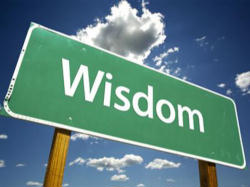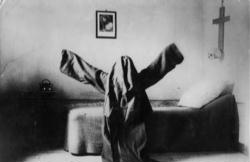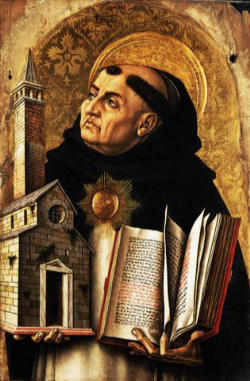 There is almost nothing in our human experience to match the hopeful prospect of the birth of a child. Only the most jaded and cynical person gives up on searching or waiting for the person or persons who will figure out the solutions to our most intractable problems. The next child, or the newest child, or the child yet to be¸ holds forth that promise.
There is almost nothing in our human experience to match the hopeful prospect of the birth of a child. Only the most jaded and cynical person gives up on searching or waiting for the person or persons who will figure out the solutions to our most intractable problems. The next child, or the newest child, or the child yet to be¸ holds forth that promise.
Throughout human history there has been a steady stream of helpful people – some living relatively short lives – others achieving great age – some simple servants of humanity, others great movers of nations. There is no indication whatsoever that the stream is anywhere near ready to dry up.
But the prospect of achievement is by no means the full measure of the promise of a child. The hope that virtually every child embodies – that humanity persists, that the community has a future, that the family will go on, that former generations will be remembered, and that we won’t die alone – is sufficient to establish the meaning of any child’s life. Being forgotten and alone is at the root of so much human anxiety and suffering.
Every child conceived and born is a community within herself: no child has ever come into existence alone, her life is the fruit of a “communio personi”, the communion of persons¸ that reflects the relations between the members of the Holy Trinity, and in ideal circumstances, the love between the child’s mother and father.
Even in lesser circumstances, in which parents didn’t expect to become parents, her conception transforms them into a mother, into a father, whether or not they wished to be. Every child conceived in a mystical way creates her own family, a family she has an intrinsic right to.
In Scripture and Christian tradition, Wisdom is an essential element of human existence. Experience also shows us how necessary wisdom is to human life. The Old Testament word hokmah and the Greek word Sophia refer to ability and knowledge, understanding, insight and prudence. It also refers to practical knowledge, of the carpenter or stone mason, the economist and the governor.
These are the things that make up the fabric of civilization. Without them society breaks down into chaos, confusion and conflict. With them there is a social order, justice and peaceful relations. “The fear of the Lord is the beginning of wisdom: and the knowledge of the holy is prudence.” (Prov. 9:10)
God is the ultimate source of wisdom. St. James 1:5 tells us “If any of you lacks wisdom, let him ask God, who gives to all men generously and without reproaching, and it will be given him.” And he continues “The wisdom from above is first of all pure, then peaceable, gentle, compliant, full of mercy and good fruits, without inconstancy or insincerity.And the fruit of righteousness is sown in peace for those who cultivate peace”.
Wisdom brings about peace between nations, fosters hospitality between neighbors, strengthens the bonds within families and ultimately leads us all to God. This is what society, community, family and faith is all about. Without it we’re reduced to brute beasts, competing with each other for survival and dominance.
This is why we are pro-life! The love, advancement and the protection of life is at the very heart of human civilization. It is what makes us truly human and reflects in us the image of our Creator.
The Book of Wisdom (in the KJV bible) adjures us “Seek not death in the error of your life: and pull not upon yourselves destruction with the works of your hands. For God made not death: neither hath he pleasure in the destruction of the living. For he created all things, that they might have their being: and the generations of the world were healthful; and there is no poison of destruction in them, nor the kingdom of death upon the earth: (For righteousness is immortal.)
As Christians that care about the world that God so loves, we have to be for all life and every life because – “Wisdom breathes life into her children”

